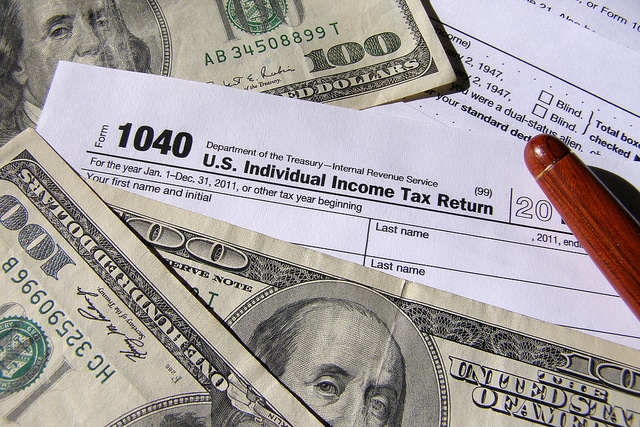If you owe substantial amounts of money to a creditor, you may be facing a potential wage garnishment. Some people mistakenly believe that if their wages are garnished, they will be left with virtually nothing to sustain themselves financially. That is not the case.
Wage Garnishment Defined
The United States Department of Labor defines wage garnishment as any legal or equitable procedure through which some portion of a person’s earnings is required to be withheld by an employer for the payment of a debt. Most garnishments are made by court order, wherein a sheriff serves a “writ” to the person’s employer.

Limits on Garnishment
In Florida, the head of the family is fully exempted from garnishment if they provide for more than 50 percent of the support for a child or any other dependent. All of the disposable earnings of a head of family amounting to, or less than, $750 a week are also exempt from attachment or garnishment. Basically, this means if you are the breadwinner for your wife and child, you can claim an exemption from garnishment.
Florida Statutes 222.11 is the governing law in this regard, and stipulates earnings to be inclusive of compensation paid or payable, in money of a sum certain, for personal services or labor whether denominated as wages, salary, commission, or bonus. In order to avail the benefits of exemption, you have to provide a sworn affidavit from the court stating that you are the head of your family. Even if you are not the head of the family, Florida law states that creditors cannot garnish more than 25 percent of your wages, or the sum that surpasses 30 times the minimum wage, whichever is less.
It is important to note that in case you owe child support, student loans, or unpaid taxes, your wages can be garnished even without a formal court order. Contingent upon whether you have other dependents and how much support is due, between 55 percent and 65 percent of your wages can be garnished to pay child support. For student loans, this amount can be up to 15 percent of your disposable income. For taxes, there is no fixed percentage and the amount to be garnished is calculated on a pro rata basis depending upon your tax rate and number of dependents you have.
Wage garnishment can stop if you decide to file for bankruptcy under Chapter 7 or Chapter 13, as an “automatic stay” will become effective and prevent any creditor from making any move to collect on or satisfy a judgment, including garnishment. In such a case, your employer will get a notification from the bankruptcy court or from your creditor, explaining that bankruptcy has been filed and automatic stay on garnishment is in effect, preventing future garnishment. The stay operates as long as the bankruptcy case is open, unless you have filed for bankruptcy before, in which case the stay is for a period of 30 days only. If your previous filings are two or more in the past one year, automatic stays do not take place unless you specifically appeal to the court for the same and show good faith. Automatic stays, however, have no effect on child support or alimony payment, as they are considered priority debts and cannot be stopped by filing bankruptcy.
Contact an Experienced Wage Garnishment and Bankruptcy Law Firm Today
If you are being subjected to a wage garnishment claim, you need to speak with a competent, qualified Florida bankruptcy attorney to determine whether a bankruptcy filing is called for and what your remedies may be. To learn more with a free consultation with experienced Florida wage garnishment and bankruptcy lawyers, call Hoffman, Larin & Agnetti, P.A. today.


